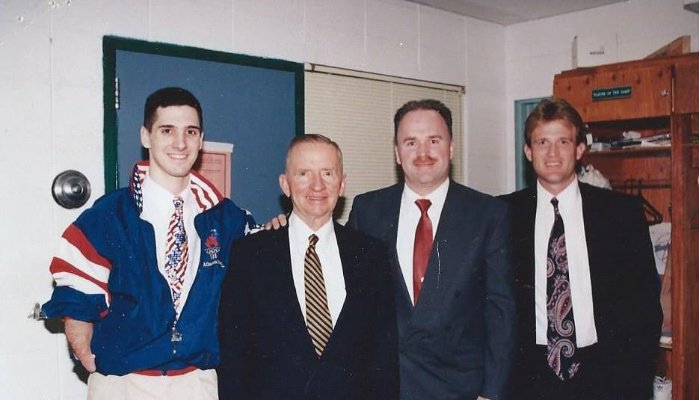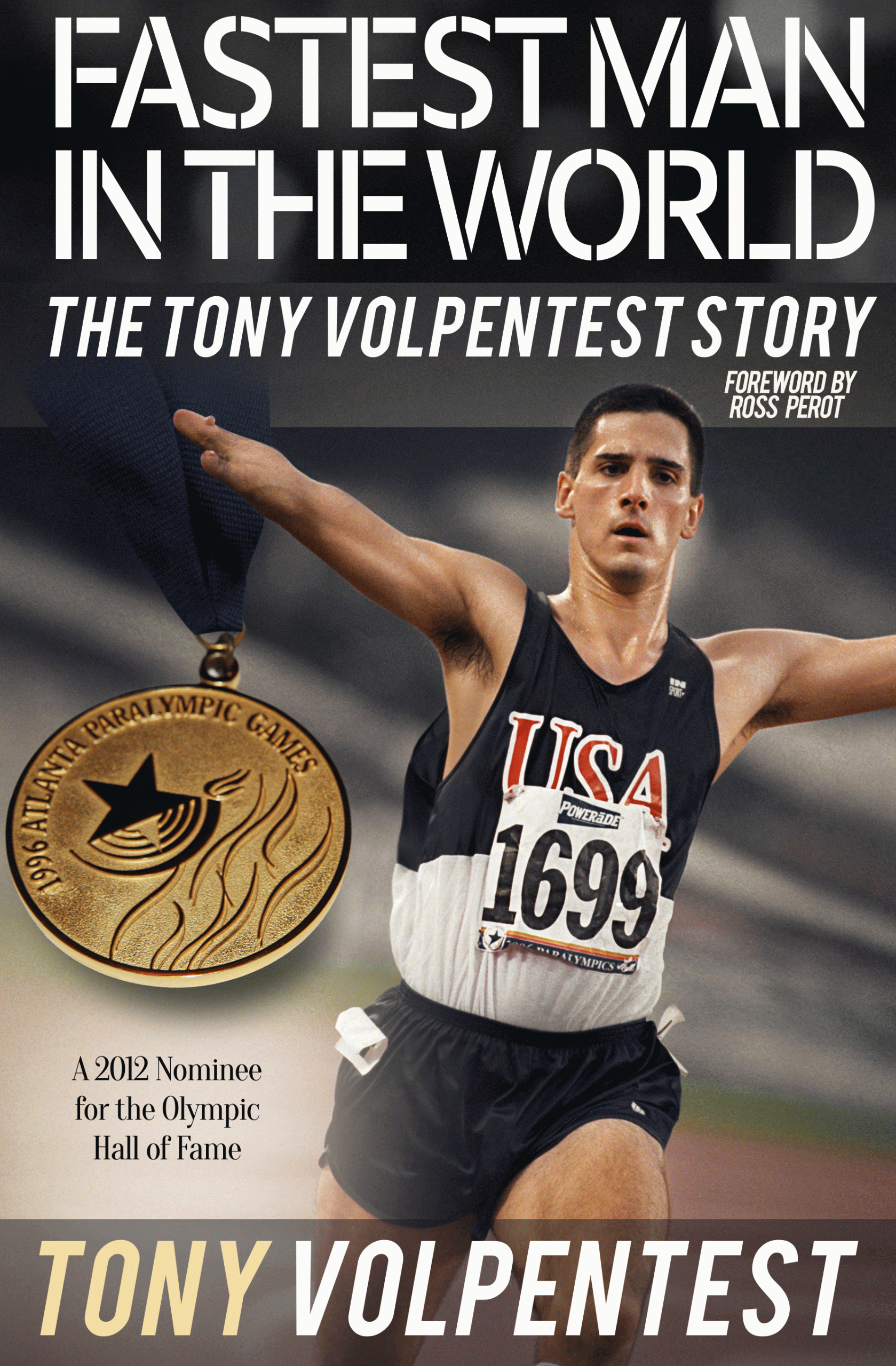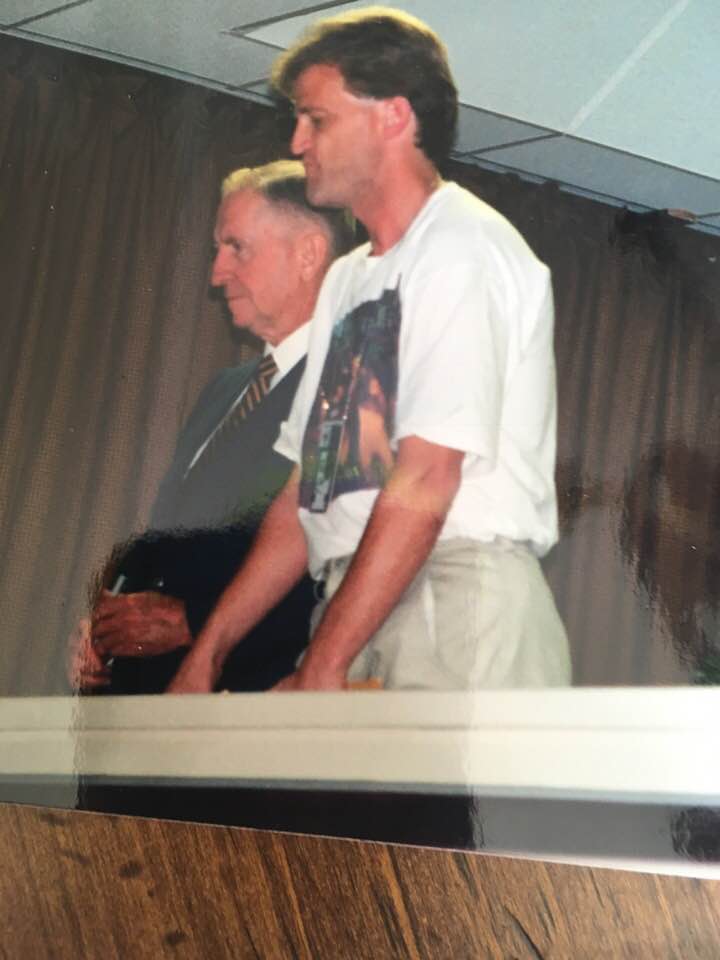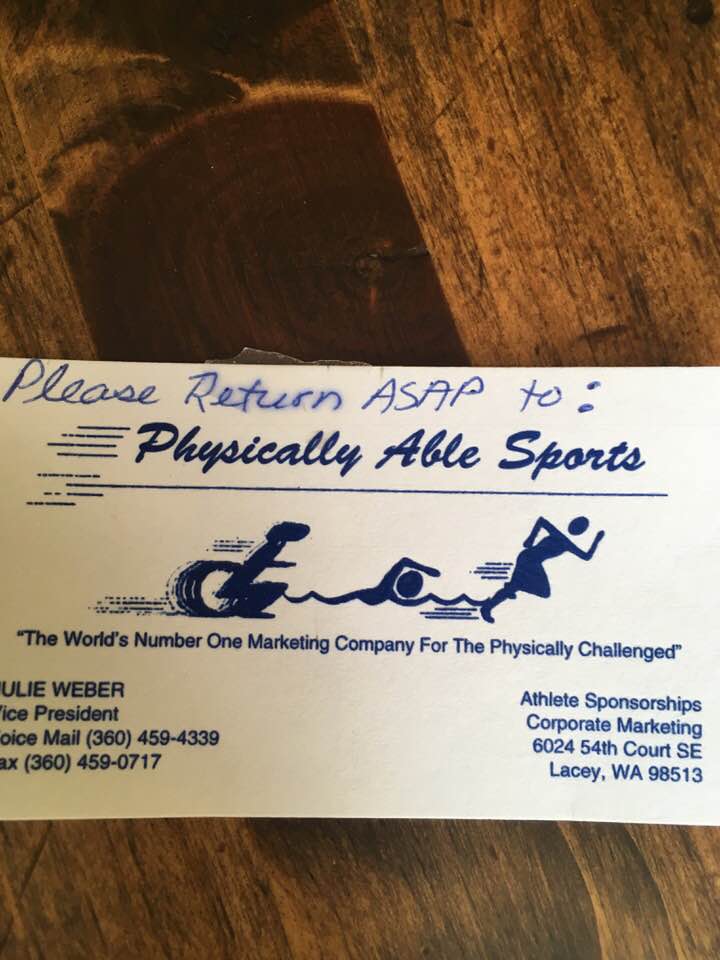With Great Mentors, You Truly Can Help Change The World

Left to Right: Tony Volpentest, Ross Perot, Bryan Hoddle, and Larry Weber
From 1995 to 2000, my wife Julie and I ran a small company called Physically Able Sports. We worked with five of the top Paralympic Track athletes in the world.
Our company was the pioneer in exclusively representing Paralympic athletes. Our main objective was to assist Paralympic athletes in becoming professional athletes like those in other sports. We were blessed to be involved in numerous events and moments that broke barriers for Paralympic athletes on the world stage.
Mr. Ross Perot sponsored Tony Volpentest, considered the fastest disabled athlete in the world at the time. Tony won gold medals in the 100 and 200 meters at the Atlanta Paralympic Games. Bryan Hoddle was Tony's coach, who helped him achieve two gold medals and a world record in the Paralympic Games.
After his coach and my good friend, Bryan Hoddle, moved on to other pursuits, I took over as Tony's coach. When I coached Tony, he set a world record in the 200 meters and won two gold medals in the 100 and 200 meters at the 1999 World Paralympic championships in Spain.
Ross Perot was a billionaire who ran for the President of the United States in 1996. Although most people today may not know who he is, during those years, I had the opportunity to work with him on several projects as he campaigned for the presidency. Mr. Perot was also involved in a lot of behind-the-scenes work for veterans during those days. Sadly, he passed away in 2019 at the age of 89.
Many people are unaware of how much Mr. Perot admired and fought for active duty and military veterans. I admired his work for veterans behind the scenes, as he never sought credit for it. Mr. Perot's fantastic contributions to the veteran community went largely unnoticed by the public, but they did not go unnoticed by those he helped.
I considered Mr. Perot a mentor in some business and political areas, even though we differed on some political issues.
Mr. Perot was amiable and kind to us when we worked with him. He helped us navigate many challenging situations in the business world without doing any work for us. His approach was to give suggestions and let us sink or swim.
When Mr. Perot would call me at our home on business, Julie would say, "You answer it." She was a bit in awe of the man at the time. However, he, indeed, was like the guy next door. He was easy to talk to, had a great sense of humor, and was humble. He carried around a 20-year-old briefcase even though he could afford more. He was straightforward and a tell-it-like-it-is man.
Mr. Perot was all in when it came to helping us learn how to break challenging barriers, including barriers in the media.
Julie was outstanding in navigating with CBS, CNN, and other world media to promote the Paralympic movement on the business side of things. We had a fantastic team committed to breaking down long-established barriers that stood in the way of Paralympic Athletes reaching their potential. Being around and talking with Mr. Perot about his experiences helped us have the confidence to navigate new areas.
We also set up the one-to-one challenge between Neil Fuller and Tony Volpentest in Toronto, Canada, through our business, Physically Able Sports. The one-to-one challenge was the first event of its kind in the world.
Working around Mr. Perot taught me to pursue big dreams and goals. I also learned that it never hurts to ask for anything in life.
For example, I asked the meet promoter in Toronto to create a special undercard event for the much-heralded Johnson and Bailey million-dollar sprint race. I proposed an undercard event between Tony and the second-fastest Paralympic sprinter in the world, Neil Fuller from Australia.
The meet promoter agreed to the terms of my proposal. The race between Tony and Neil became the first major Paralympic undercard event in the track and field world.
The main event, of course, was between Michael Johnson and Donavan Bailey. Johnson was the Olympic Champion and world record holder in the 400 and 200 meters, and Donavan Bailey was the 100-meter Olympic Champion. They raced at 150 meters to determine the fastest non-disabled runner in the world.
Before the main event, Tony outleaned Neil Fuller from Australia at the finish of the 100 meters in the undercard race. The crowd exploded in appreciation of a great race. The race was successful and seemed very interesting to the public that day.
That day, Michael Johnson pulled a muscle and did not finish the race against Donavan Bailey in the main event.
The crowd came primarily to see Johnson and Bailey in the million-dollar race but left in awe and appreciation of Tony and Neil in many ways.
What I remember most about our Paralympic days was how hard it was to get sponsorships for Paralympic Athletes. We were blessed to break down many long-standing barriers that stood in the way of Paralympic athletes securing sponsorships as professional athletes. Knowing that Mr. Perot was in the background, cheering us on from the sidelines was always helpful.
The story's moral is to search for exceptional mentors who can guide you to serve others in ways you might not have thought of before. Finding qualified individuals dedicated to assisting you in achieving your goals and aspirations can save you years, or even decades, of struggle. A good mentor is priceless, and their guidance is invaluable.
Blessings,
Coach Weber
Philippians 4:13

You can buy Tony's book at Amazon.com: Fastest Man in the World: The Tony Volpentest Story (Foreword by Ross Perot) (Audible Audio Edition): Tony Volpentest, Wayne Edwards, Bettie Youngs Book Publishers Co., Inc.: Audible Books & Originals

Ross Perot and Larry Weber speaking at a press conference in Atlanta
